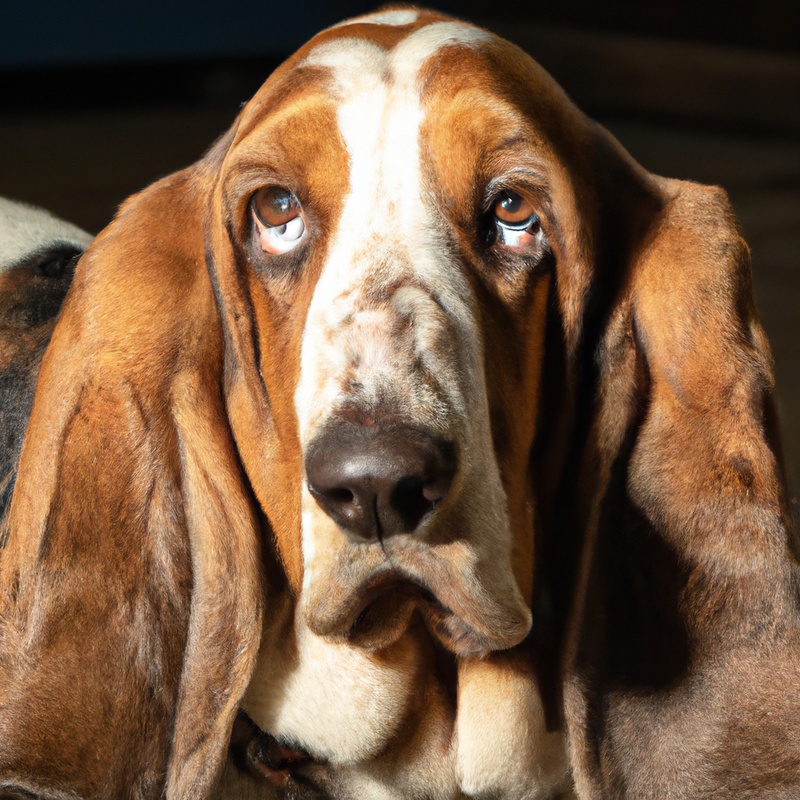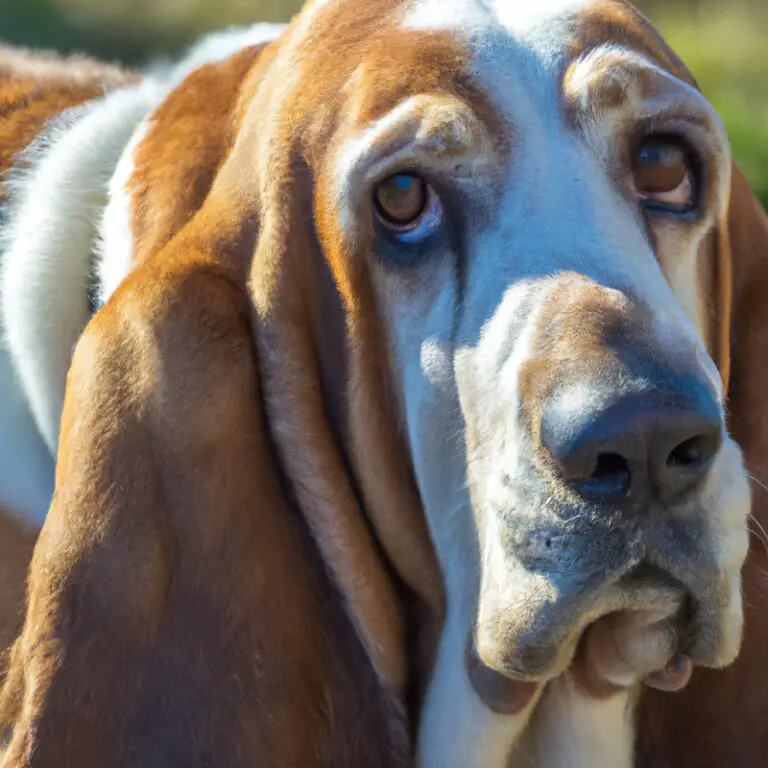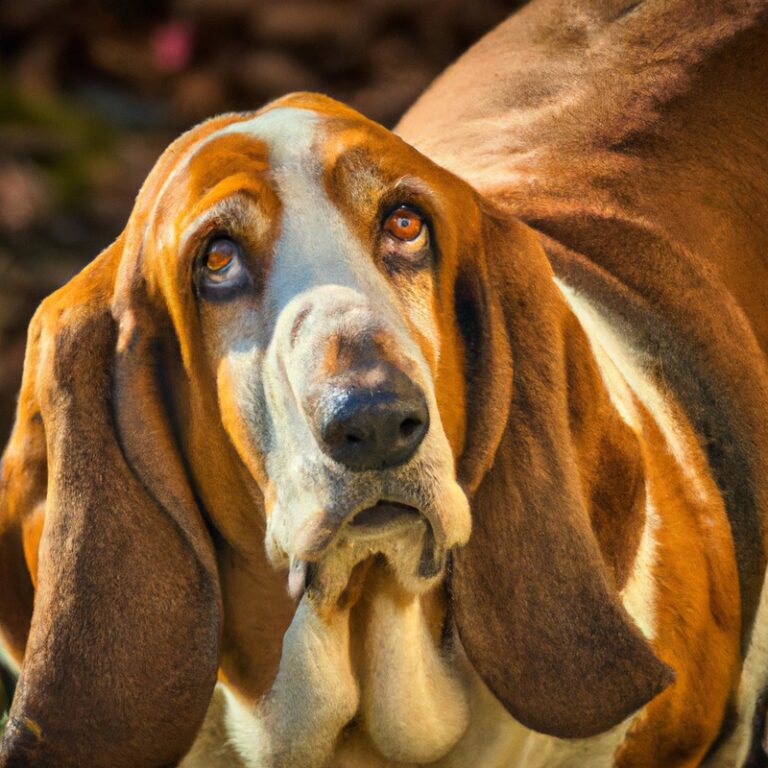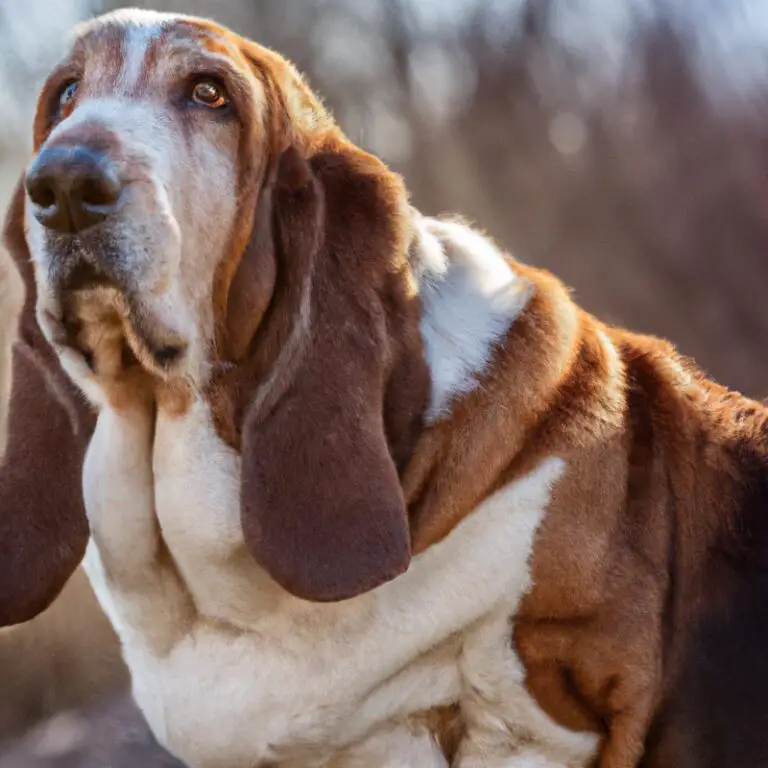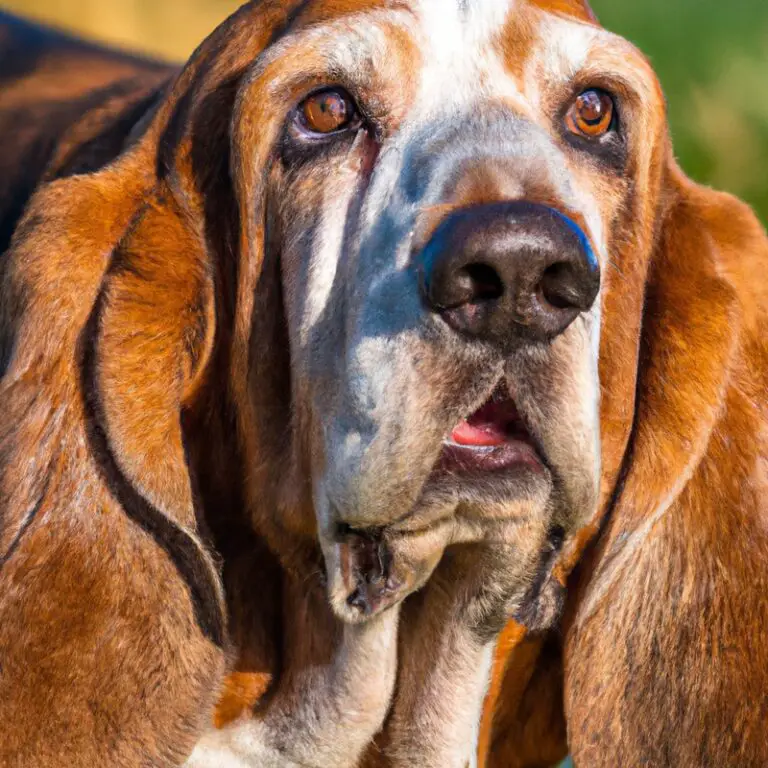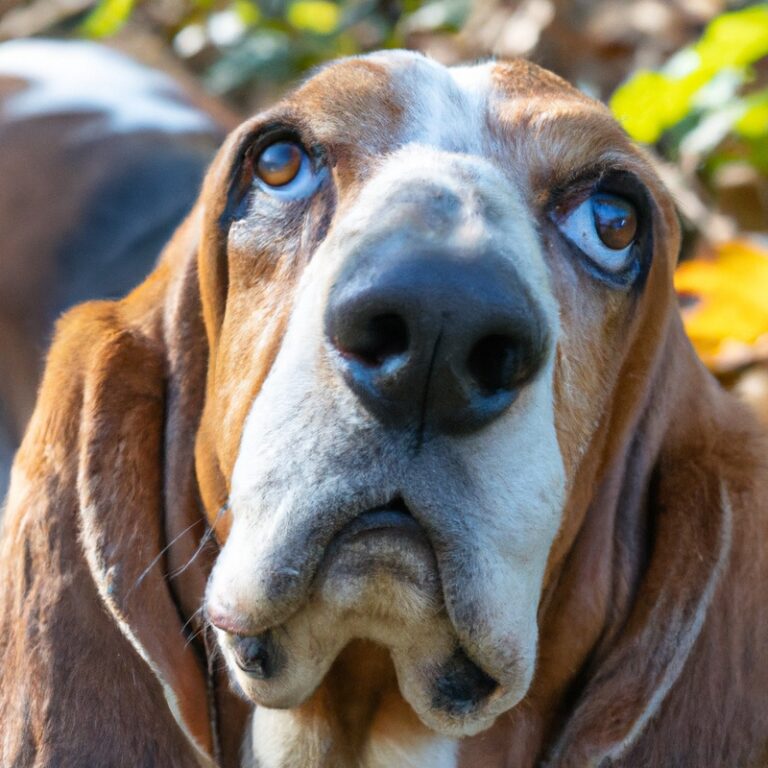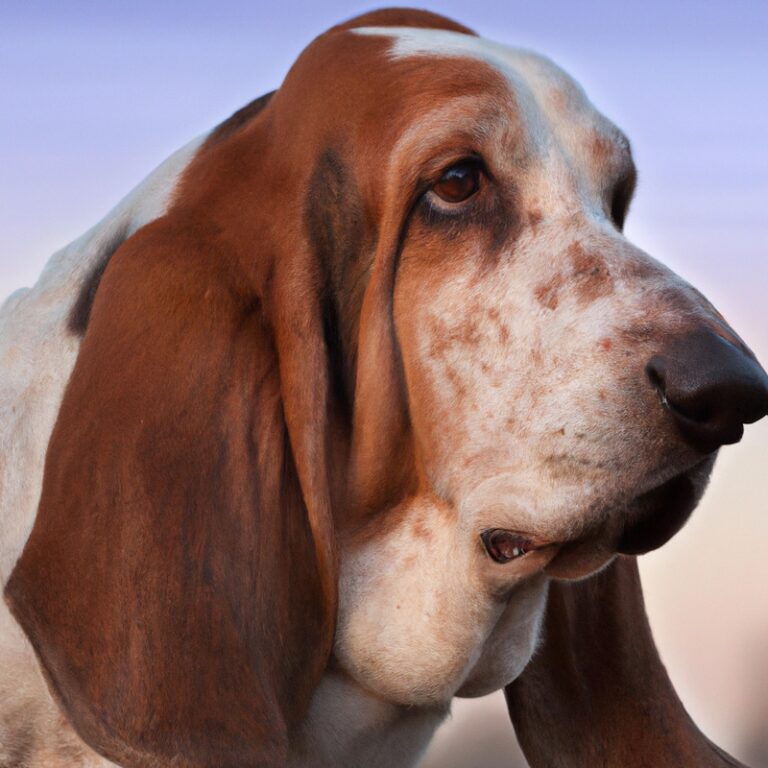Are Basset Hounds Prone To Excessive Snuffling?
Key Takeaways:
- Basset Hounds are a breed known for their excessive snuffling behavior.
- This snuffling behavior is a result of their unique physical traits, including a long nose and floppy ears.
- Basset Hounds use snuffling as a way to explore their surroundings and gather information through scent.
- While excessive snuffling is common in Basset Hounds, it is important to ensure their snuffling does not interfere with their overall well-being.
Imagine having a furry friend by your side who loves to sniff out every interesting scent in their path. Meet the Basset Hound, a breed known for their incredible sense of smell and adorable droopy ears.
But along with their charming looks comes a question that many potential Basset Hound owners have: are these lovable dogs prone to excessive snuffling?
As an expert in dog breeds and behaviors, I’ve delved into the world of Basset Hounds to bring you answers. In this article, we’ll explore the physical characteristics and behavioral traits of Basset Hounds, uncover the reasons behind their snuffling, and discuss how to manage this endearing and sometimes noisy behavior.
Get ready to discover everything you need to know about Basset Hounds and their snuffling habits.
| Question | Answer |
|---|---|
| Are Basset Hounds prone to excessive snuffling? | Yes |
Understanding Basset Hounds
Physical Characteristics of Basset Hounds
Basset Hounds have distinct physical characteristics that set them apart. One of their most notable features is their long, droopy ears, which help to enhance their sense of smell.
They also have a heavy and elongated body, with short legs that make them low to the ground.
Their loose skin forms folds and wrinkles, especially around the face, giving them an adorable and expressive appearance. Basset Hounds typically have a large, domed head with a prominent brow and deep-set eyes.
Their coat is short and dense, usually in tri-color or bi-color combinations.
Overall, these physical traits contribute to the unique and lovable appearance of Basset Hounds.
Behavioral Traits of Basset Hounds
Basset Hounds are known for their unique and lovable behavioral traits. One of the most notable traits is their friendly and gentle nature.
They are typically good-natured and get along well with children and other pets.
Basset Hounds are also known for their stubbornness, which can make training a bit challenging. They have a strong sense of smell and love to follow scents, so it’s important to keep them on a leash when outside.
Their laid-back attitude and love for relaxation make them great companions for those who prefer a calmer lifestyle.
Snuffling in Basset Hounds
What is Snuffling?
Snuffling is a common breathing sound in dogs, including Basset Hounds.
It refers to a noisy and congested breathing pattern that is often caused by the narrowing of the airways.
Snuffling can sound similar to snoring or snorting, and it may occur during normal activities or when the dog is relaxed.
While snuffling is typically harmless, it can sometimes indicate respiratory issues or allergies in Basset Hounds.
It’s important to monitor your dog’s breathing and consult a veterinarian if you have any concerns about their snuffling.
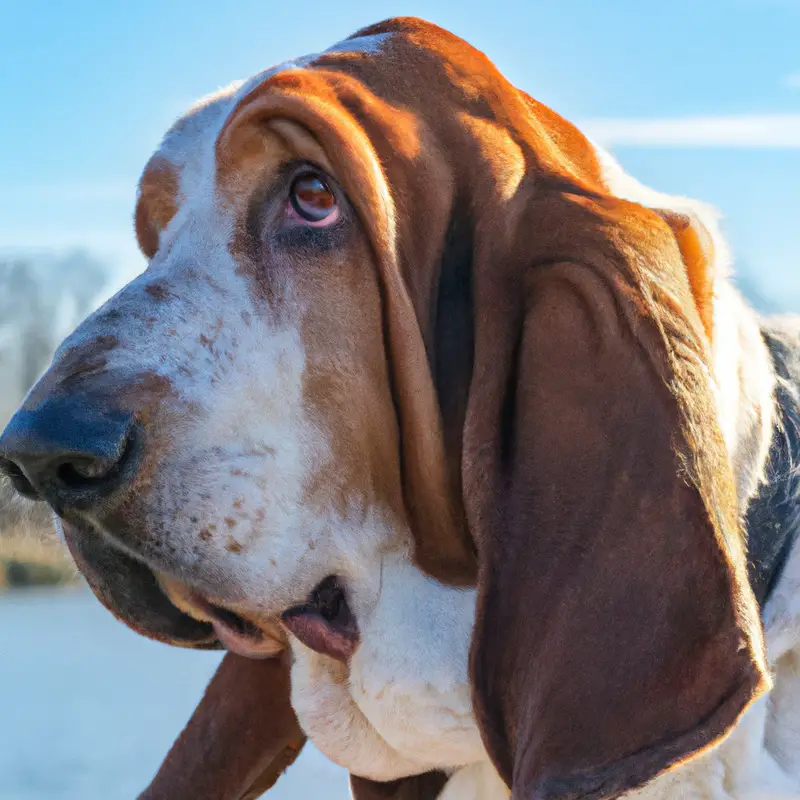
Snuffling vs. Other Breathing Sounds in Dogs
Snuffling is a common breathing sound in dogs, but how does it differ from other sounds?
Snuffling is characterized by a loud, repeated inhalation and exhalation through the nose.
It is often accompanied by a snorting or sniffling sound.
Other breathing sounds in dogs can include panting, wheezing, and reverse sneezing.
Panting is a normal way for dogs to cool down, while wheezing and reverse sneezing may be signs of respiratory issues.
Snuffling, on the other hand, is generally not a cause for concern unless it becomes excessive or is accompanied by other symptoms.
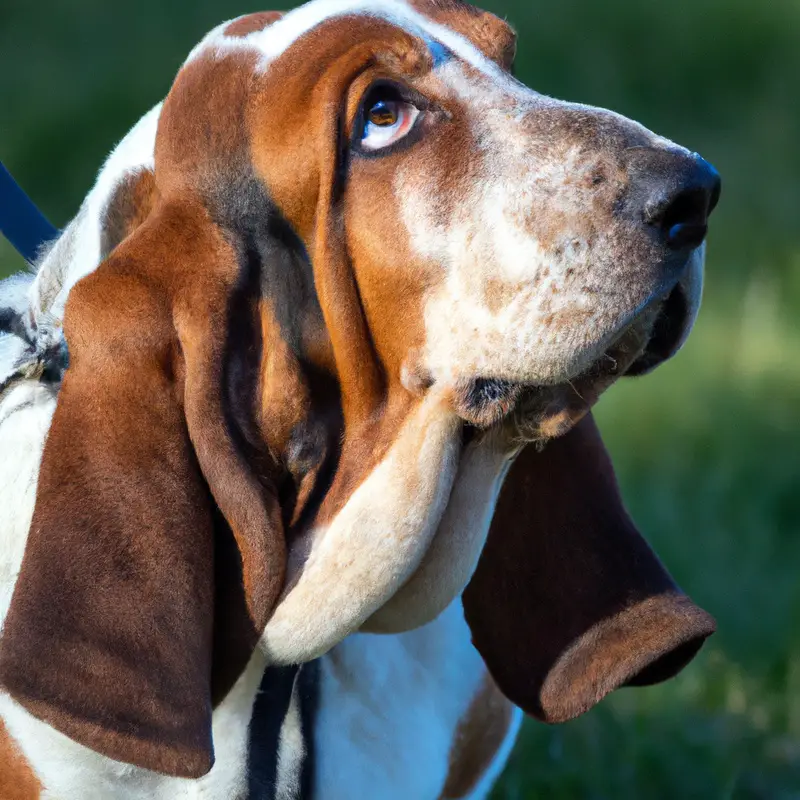
Common Reasons for Snuffling in Basset Hounds
Basset Hounds are prone to snuffling due to their unique anatomy.
Their long, droopy ears and wrinkled skin can contribute to nasal congestion and snorting sounds.
Additionally, their short legs and heavy bodies may put pressure on the chest, leading to difficulty breathing.
Environmental factors such as allergens or irritants can also trigger snuffling in these dogs.
It’s important to monitor and manage snuffling in Basset Hounds to ensure their comfort and overall well-being.
Regular veterinary check-ups, environmental modifications, and proper grooming practices can help alleviate snuffling symptoms.
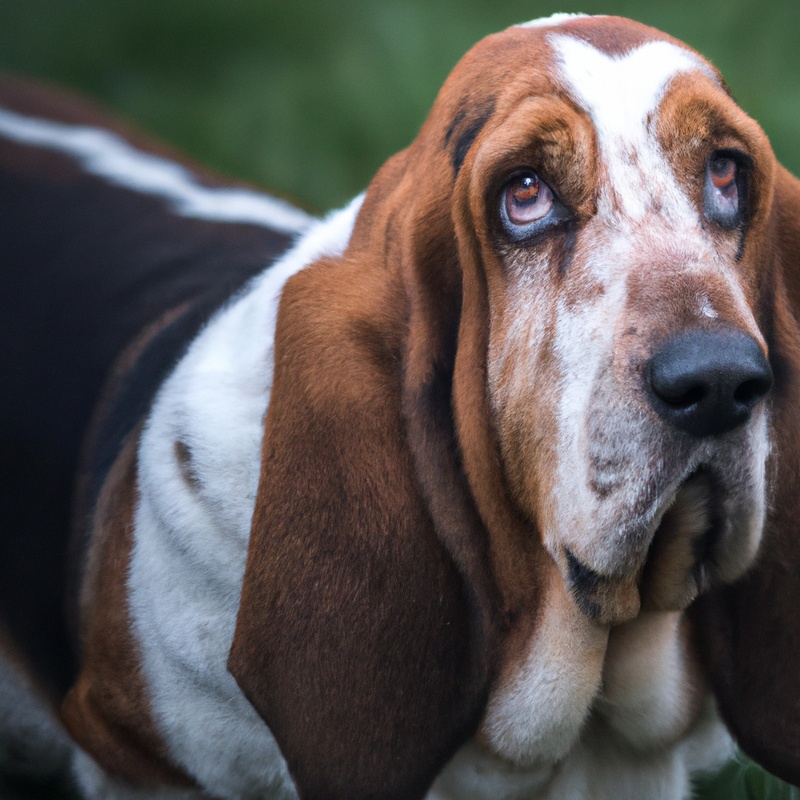
Factors Affecting Snuffling in Basset Hounds
Breed Predisposition to Snuffling
Basset Hounds have a breed predisposition to snuffling.
This means that they are more prone to making snuffling sounds compared to other dog breeds.
It is a common characteristic of their anatomy and physiology, with their long ears, droopy jowls, and wrinkled skin contributing to their unique snuffling sound.
While snuffling is a normal behavior for Basset Hounds, it’s important to monitor their breathing and seek veterinary attention if there are any signs of respiratory distress or discomfort.
Anatomy and Physiology of Basset Hounds
Basset Hounds have unique anatomy and physiology that contribute to their snuffling tendencies. Their long, droopy ears and loose skin around their face can obstruct air flow, leading to snuffling.
Additionally, their long bodies and short legs may cause respiratory stress.
Basset Hounds also have a keen sense of smell, which can result in snuffling as they try to detect scents. Understanding their anatomy and physiology helps us better manage and support their breathing and overall health.
Environmental Triggers for Snuffling
Environmental triggers can play a significant role in causing snuffling in Basset Hounds.
These triggers can include factors such as air pollution, allergens in the environment, and extreme weather conditions.
Exposure to dust, pollen, mold, and pollutants can irritate the Basset Hound’s respiratory system, leading to increased snuffling.
Additionally, cold temperatures or high humidity can also exacerbate snuffling.
It’s important to be aware of these triggers and take necessary precautions to minimize their impact on your Basset Hound’s breathing.
Health Concerns Related to Snuffling
Potential Respiratory Issues in Basset Hounds
Basset Hounds are prone to potential respiratory issues due to their unique anatomy and physiology. Their long ears and droopy skin can create an environment that is prone to infections, such as ear infections and skin fold dermatitis, which can affect their breathing.
Additionally, their short legs and heavy bodies can put strain on their respiratory system, leading to conditions like tracheal collapse and brachycephalic airway syndrome.
Regular veterinary check-ups and prompt medical attention are essential for managing and addressing these respiratory issues in Basset Hounds.
Allergies and Snuffling
Allergies can be a common cause of snuffling in Basset Hounds.
When a Basset Hound is allergic to certain substances, such as pollen or dust mites, it can lead to inflammation and congestion in the nasal passages, resulting in snuffling sounds.
These allergies can be seasonal or year-round.
If you notice your Basset Hound snuffling more during certain times or in specific environments, allergies may be the cause.
It’s important to consult with a veterinarian to determine the specific allergens and develop a plan to manage and alleviate the symptoms.
When Snuffling Requires Medical Attention
If your Basset Hound’s snuffling becomes persistent or severe, it may indicate an underlying health issue.
Here are some signs that snuffling requires medical attention: 1.
Difficulty breathing or rapid breathing.
2.
Wheezing, coughing, or gagging.
3.
Nasal discharge that is green or yellow.
4.
Decreased appetite or weight loss.
5.
Lethargy or lack of energy.
6.
Changes in behavior or mood.
If you notice any of these symptoms, it is important to consult with your veterinarian for a proper diagnosis and appropriate treatment.
They can help determine the cause of the snuffling and offer guidance on managing your Basset Hound’s health.
Managing Snuffling in Basset Hounds
Regular Veterinary Check-ups for Basset Hounds
Regular veterinary check-ups are essential for the overall health and well-being of Basset Hounds.
During these visits, the veterinarian will perform a thorough examination to identify any potential health issues early on.
They may also recommend vaccinations, routine blood work, and dental cleanings.
Regular check-ups allow for preventive care and ensure that any underlying conditions are diagnosed and treated promptly.
Remember, a proactive approach to your Basset Hound’s healthcare is key to keeping them happy and healthy for years to come.
Environmental Modifications for Improved Breathing
To help improve the breathing of your Basset Hound, there are some simple environmental modifications you can make.
- Keep the air clean: Remove any potential irritants, such as dust, smoke, or strong chemical odors, from your home. This can help reduce inflammation and congestion in your dog’s respiratory system.
- Maintain proper humidity: Dry air can cause nasal passages to become dry and irritated. Use a humidifier in your home to add moisture to the air, especially during dry seasons or in dry climates.
- Provide good ventilation: Ensure that your Basset Hound’s living area has proper airflow to prevent stuffiness and stagnant air. Opening windows or using fans can help circulate fresh air.
- Limit exposure to extreme temperatures: Excessive heat or cold can worsen breathing difficulties. Keep your Basset Hound in a temperature-controlled environment to prevent respiratory distress.
By making these environmental modifications, you can create a more comfortable and supportive space for your Basset Hound’s breathing.
Grooming and Cleaning Practices for Basset Hounds
Grooming and cleaning practices play a vital role in the overall health and well-being of Basset Hounds. Regular brushing helps to remove loose hair and prevent matting.
Their long ears should be checked and cleaned regularly to prevent infections.
Their droopy eyes should also be cleaned daily to avoid any irritations. Bathing should be done as needed, using a gentle dog shampoo.
Additionally, their nails should be trimmed regularly to prevent discomfort or injury.
By maintaining a consistent grooming routine, you can keep your Basset Hound looking and feeling their best.
Final Verdict
Basset Hounds are indeed prone to excessive snuffling due to their unique physical characteristics and breed predisposition.
Snuffling is a common behavior for these dogs and is typically harmless.
However, it is important to monitor their snuffling closely and seek veterinary attention if it becomes severe or accompanied by other respiratory issues.
By keeping up with regular veterinary check-ups, making environmental modifications, and practicing proper grooming and cleaning, we can effectively manage and minimize snuffling in Basset Hounds.
Remember, understanding and addressing this issue will ensure the overall health and well-being of these lovable and adorable dogs.

